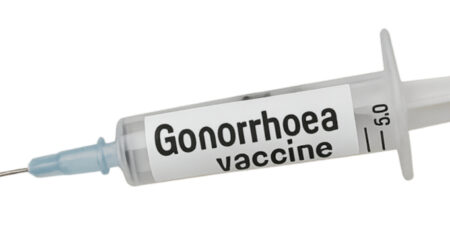Less than half of people think it’s OK to withdraw sexual consent if they’re already naked
A survey by sexual health charity FPA reveals deeply concerning attitudes about sexual consent that are prevalent across all ages in the UK.
FPA is calling for high-quality relationships and sex education (RSE) on consent and better representation of consent in the media after the survey showed a huge disparity between young people’s perception of their knowledge on consent, and their attitudes when presented with real-life scenarios.
The survey found:
- Fewer than half of people (47%) think it’s OK for someone to withdraw consent if they are already naked, along with just 39% of young people aged 14-17.
- Only 13% of people said they would be most likely to discuss issues of consent with a partner.
- 45% of young people aged 18-24 learnt about consent from TV and film, along with 37% of those aged 14-17.
- 9% of people don’t think it is OK to withdraw consent under any of the following circumstances:
– They have been bought dinner
– They have been bought drinks
– They have already kissed the other person
– They are in a bedroom
– They have had sex with that person before
– They are already naked
Draft government guidance on relationships and sex education (RSE) – which is due to become statutory in schools in England from 2020 – advises that young people should be taught “the concepts of and laws relating to sexual consent,” as well as “how people can actively communicate and recognise consent from others and how and when consent can be withdrawn.”
To help open up the conversation and equip parents, teachers and health professionals to talk about the subject, FPA’s Sexual Health Week 2018 is focused on consent.
The Consent: Yes, yes, yes! campaign (24 – 30 September) takes a closer look at a topic that underpins all work on relationships and sexual health, with the message that consent is about much more than saying “no” – it’s about giving an enthusiastic “yes”.
As part of the week, FPA will be producing digital resources for educators, as well as posters, leaflets, and content on consent and the law, recognising and negotiating consent, and advice for parents and teachers on how to discuss consent with young people.
With almost half of young people aged 18-24 saying they learnt about consent from TV and film, there will also be a focus on how consent is portrayed in the media.
Natika Halil, Executive Director of FPA said:
“Prior to relationships and sex education (RSE) becoming statutory in England, we want to make sure educators and parents are prepared for discussions on consent with young people. Currently, only 11% of young people would talk to teachers about consent but RSE will be statutory in two years’ time. Consent should underpin all discussions around relationships and sex, and young people must be equipped with the essential knowledge and skills that will help to empower and safeguard them.
“It’s been encouraging to see the cultural shift in society over the past year, with calls for better understanding of and respect for consent. But it’s really worrying that people of all ages think that it’s not OK to withdraw consent in a range of situations. It’s always OK to say no to sexual activity that you’re not comfortable with, whatever the situation – and is equally important to listen to and respect your partner if they want to stop.
“We want Sexual Health Week to provide a starting point for these conversations, addressing the basics and helping people feel more confident recognising, discussing and negotiating consent.”
Mel Gadd at FPA, said:
“Consent is the single most important aspect of relationships and sex education. If a young person fully understands what consent means for themselves and others, it lays the foundations for so many other core values such as respect, good communication, self-esteem and resilience. It can mean that they strive to do no harm to others and, in turn, know how to seek help if they are harmed. I often hear young people say how confusing they think consent is. But consent is easy, as long as it’s taught in the right way.
“We need to equip young people with both the knowledge and tools to recognise what does and does not constitute consent, how to check for it, and how to confidently have conversations around it. This includes how to say no but, even more importantly, how to listen for an enthusiastic yes.”




